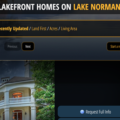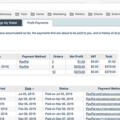Brief in Nosalek suit claims DOJ complaint isn’t taking buyer rebates into account
Yet
another
party
has
taken
a
stand
in
the
Nosalek
commission
lawsuit.
On
June
20,
Dmitry
Shkipin
—
who
runs
development
and
operations
at
HomeOpenly.com
—
filed
an
amicus
brief
that
takes
aim
at
the
changes
to
the
agent
commission
structure
outlined
by
the
Department
of
Justice
in
its
statement
of
interest.
In
his
brief,
Shkipin
claims
that
the
statements
made
by
the
DOJ
are
“not
entirely
accurate”
and
that
the
DOJ
“contradicts
information
in
its
own
publication.”
In
its
statement
of
interest,
the
DOJ
claims
that
the
changes
MLS
Property
Information
Network
(MLS
PIN)
proposed
for
its
commission
rule
“still
gives
sellers
and
their
listing
brokers
a
role
in
setting
compensation
for
buyers’
brokers.
…
When
sellers
make
such
offers,
buyer
brokers
need
not
compete
on
price
to
attract
buyers.’”
According
to
Shkipin,
this
ignores
the
fact
that
buyer’s
brokers
in
40
states
are
allowed
to
negotiate
buyer
rebates
with
their
client.
In
an
economic
analysis
paper
published
on
the
DOJ’s
website
and
cited
by
Shkipin,
the
author
states
that
“rebates
are
no
different
from
simply
charging
a
lower
commission
fee,
and
one
should
ask
why
the
ability
to
rebate
can
mitigate
the
disincentive
to
compete
through
lower
commission
rates.”
According
to
the
DOJ’s
publication,
rebates
are
banned
in
Alaska,
Oregon,
North
Dakota,
Kansas,
Oklahoma,
Missouri,
Louisiana,
Mississippi,
Alabama,
New
Jersey
and
Tennessee,
none
of
which
are
served
by
MLS
PIN.
“In
the
states
where
rebates
are
permitted,
buyer
brokers
are
able
to
reduce
the
commissions
paid
by
the
buyer,
even
if
commission
is
offered
in
’blanket’
form
on
MLS.
If
MLS
PIN
operates
in
states
without
rebate
bans,
their
policy
of
transmitting
’blanket’
offers
is
not,
by
itself,
harmful
to
buyers,”
Shkipin
wrote.
Conversely,
Shkipin
claims
that
the
rules
the
National
Association
of
Realtors
(NAR)
had
in
place
when
the
commission
lawsuits
were
filed
are
anti-competitive
for
three
reasons:
They
“allowed
buyer
brokers
to
advertise
services
as
’free’
when,
in
fact,
they
received
compensation
offered
via
NAR-affiliated
MLS”;
they
“required
listing
brokers
to
offer
blanket
offers
of
compensation
to
buyer
brokers
in
order
to
use
NAR-affiliated
MLS”;
and
“NAR
allowed
NAR-affiliated
MLS
to
transmit
blanket
offers
of
compensation
in
Alaska,
Oregon,
North
Dakota,
Kansas,
Oklahoma,
Missouri,
Louisiana,
Mississippi,
Alabama,
New
Jersey
and
Tennessee
where
buyer
broker
rebates
are
banned
by
state
laws.”
Shkipin
goes
on
to
argues
that
if
“the
buyer
agent
fee
is
advanced
in
’blanket’
form
from
a
seller,
it
does
not
matter
if
it
is
1
cent,
or
$100,000,
because
either
amount
is
a
’blanket’
offer
made
to
any
broker
able
to
bring
in
a
buyer.
“What
does
matter
is
that
it
is
also
negotiable
through
a
rebate,
where
buyers
are
able
to
choose
between
services
multiple
buyer
brokers
based
on
payment
terms,
that
includes
an
option
to
receive
an
excess
of
the
fees
offered
in
’blanket’
form
(that
same
way
it
includes
an
out-of-pocket
payment
in
the
event
that
the
offered
amount
is
not
enough
to
compensate
the
buyer
broker.)”
According
to
Shkipin,
the
“rebate
mechanism
is
price
competition,
but
it
is
not
recorded
on
MLS
—
it
is
paid
to
the
buyer
as
a
refund
not
taxable
by
the
IRS.”
Shkipin
also
highlights
the
commission
policy
of
his
nationwide
MLS
startup
Geodoma,
which
he
claims
allows
brokers
to
“transmit
transparent
offers
of
Cooperative
Buyer
Agent
Commission,
lawfully.”
According
to
the
brief,
Geodoma
is
able
to
do
this
in
“full
compliance
with
antitrust
laws”
by
only
allowing
offers
of
cooperative
compensation
to
be
displayed
in
states
where
a
homebuyer
is
able
to
“lawfully
negotiate
a
buyer
rebate
with
their
buyer
agent.”
Additionally,
he
notes
that
making
an
offer
of
cooperative
compensation
is
optional
and
that
“the
amount
must
be
established
independently
by
each
real
estate
professional
with
expressed
consent
from
each
individual
real
estate
seller
for
each
individual
property
listing.”
Shkipin
is
not
the
only
party
who
has
taken
issue
with
the
DOJ’s
statement
of
interest.
In
late
March,
Northwest
MLS
filed
a
brief
claiming
that
its
analysis
of
NWMLS’
rule
changes,
which
are
similar
to
those
proposed
by
MLS
PIN,
was
“ill-informed“
and
“ill-supported,”
and
that
the
statement
of
interest
“obscures,
or
misses
altogether,
the
purpose
and
impact
of
NWMLS’s
changes.“
MLS
PIN
recently
notified
its
members
that
it
would
move
forward
with
its
proposed
rule
changes,
despite
the
settlement
not
having
final
approval
and
the
objections
from
the
DOJ.






